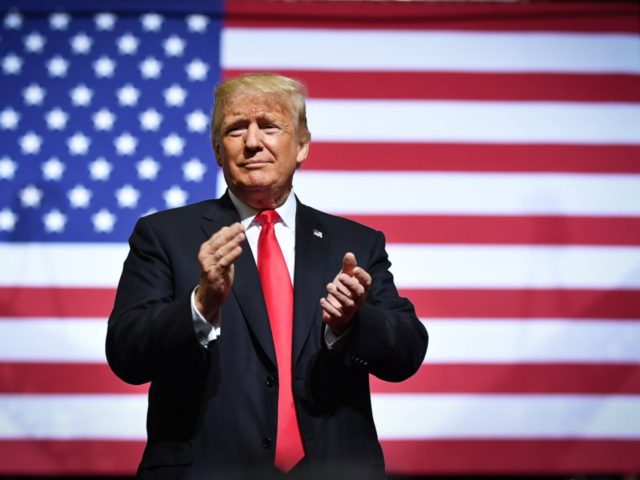It’s been a long haul. But finally, the truth about tariffs has become unavoidable.
For over 18 months, Breitbart News has been reporting that consumer prices were not significantly rising due to tariffs. We have been virtually alone in this reporting among news organizations, although Alan Tonelson has done a fine job of sifting through the data on his own. Every corporate mainstream media organization has repeatedly claimed, without evidence, that tariffs were hurting U.S. consumers.
But now the facts have become undeniable even for the mainstream media. On Friday, the Washington Post published a piece by reporter Heather Long explaining that the predictions of consumers paying higher prices because of tariffs were just wrong.
“Gail Ross can tell you two things with certainty: Americans, not the Chinese, are paying for President Trump’s tariffs. And second, most of the costs were absorbed by U.S. companies, which is why consumers haven’t seen excessive sticker shock at stores,” Long writes.
This is what Breitbart News has reported, based on publicly available data ignored by the anti-tariff crowd for over a year. U.S. companies, their bottom lines boosted by Trump’s tax cuts, have absorbed most of the tariffs instead of passing them on to U.S. households.
“Although many big corporations reacted to the announcement of tariffs with warnings that consumers would be forced to pay higher prices, the evidence so far is that corporations have been forced to absorb the costs of tariffs rather than passing them on. Instead of squeezing the pocketbooks of American households, the tariffs are putting pressure on record-high corporate profits,” Breitbart News reported in May 2018.
Now we get this from the Washington Post:
Headlines last year proclaimed Trump’s tariffs could cost the typical American family $1,000 more a year. The eye-popping number came from a JPMorgan analysis that assumed the full cost of the tariffs would be passed on to consumers, which is what is generally taught in introductory economics classes.
But that is not what’s been happening. The evidence so far indicates that most American firms passed only a fraction of the cost increase on to consumers — more in the range of $100 per family a year…
But a recent study by economists at Harvard University, the University of Chicago and the Federal Reserve Bank of Boston went a step further, examining data from two large retailers on prices of similar goods, some of which face tariffs and some that do not. The economists found a “quite modest” price difference, suggesting that U.S. companies and retailers are eating a lot of the costs and making lower profits.
The price hike for affected dishes, furniture, linens, toaster ovens, towels and umbrellas was less than 1 percent, the study found. And the price for electronics only went up by 1.4 percent.
This is a significant breakthrough. Each new round of tariff was greeted with panicky headlines predicting that U.S. consumers would be squeezed by rising prices as retailers and importers passed the cost of tariffs on to shoppers.
- “Trump’s trade war may soon hit consumers’ wallets and paychecks,” NBC News declared in a headline last year.
- “Tariffs will surely lead to higher prices for imported goods and, to a lesser extent, prices for non-imported goods that use imported materials,” the University of Pennsylvania’s business school Wharton reported.
- “Tariffs are about to hit consumers, and it won’t be pretty,” CNBC claimed.
- “Trade restrictions, by their nature, result in price increases for the goods in question. If the price of steel and aluminum goes up, manufacturers will be forced to pass those costs onto American consumers,” wrote Tori K. Whiting, the Jay Van Andel Trade Economist at the Heritage Foundation’s Roe Institute for Economic Policy Studies.
This was a major failing by the American media, misleading the American people for over a year-and-a-half about the effects of tariffs.
Breitbart readers, of course, knew the true story all along.

COMMENTS
Please let us know if you're having issues with commenting.